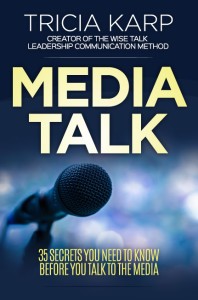 Most media trainers will tell you that you must call back a journalist before his deadline.
Most media trainers will tell you that you must call back a journalist before his deadline.
They’re right. And, that’s poor advice.
If a reporter rings you at 9.30am, tells you his deadline is 4pm, and you get back to him with the information he needs at 3.15pm … you’re in trouble.
By then, he’s most likely put together the bulk of his story, so he’s slotting you in at the last minute to make sure you’re represented. What that really means is that you’ve let go of the opportunity you were given to help shape the story. You’ve done nothing to better his understanding of your perspective or issues, and you also haven’t had a chance to suggest other sources for the story who could complement what you have to say.
The bottom line is that what you say will have minimal impact. The entire exercise has been a waste of time—not just for you, but the reporter too. There’s nothing that drives a journalist mad more than someone who never returns calls or comes back too late with information. It doesn’t make a reporter think of you first when the next story arises, because you’re hard work.
Instead, if the reporter rings you at 9.30am, tell him you’ll get back to him within an hour (at the most). Then you’ll be giving him what he needs from you long before he’s even started writing his story. This gives you the power to help shape his perspective and influence> the final story. It means he’ll go to other interviewees and ask them to react to what you said, and then those people will be talking about what you said through your perspective—not theirs.
~~~
Want more? This is an excerpt from my book, “Media Talk: 35 Secrets You Need To Know Before You Talk To The Media.” Grab your copy here.


















